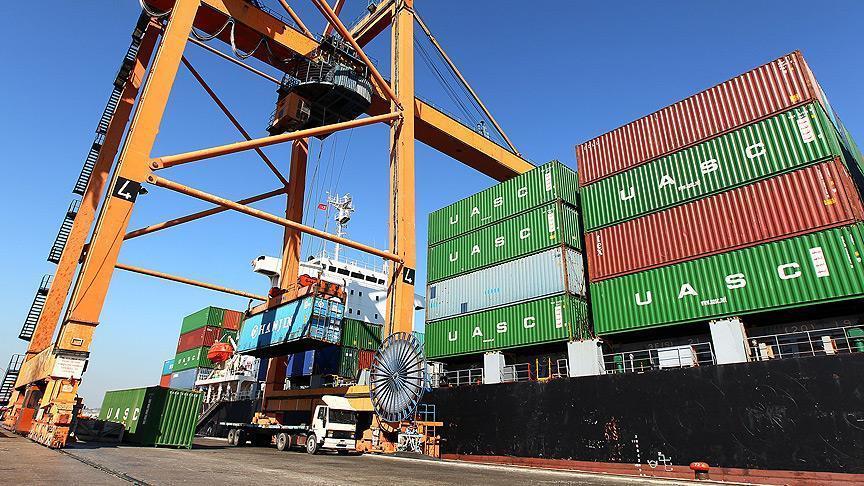Turkish economy saw a stunning, eye-catching 11 percent growth in the third quarter of this year, surpassing even the most optimist forecasts.
For President Recep Tayyip Erdogan, it was proof that Turkey is the world’s fastest growing economy and a warning to ‘agitators’ who wish the country ill.
But economists warn that Turkey’s stunning 11.1 percent growth in the third quarter — its best reading in six years and well ahead of India and China in the same period — masks potential risks ahead.
Inflation hit its highest annual rate last month at 12.98 percent, the Turkish lira has lost 11 percent of its value since September and the country’s current account deficit is worsening.
With construction booming thanks to cheap credit and high government spending, the economy risks overheating in a classic boom to bust scenario.
A full-blown crisis, however, is far from inevitable and the Central Bank Thursday has the chance to restore confidence in the lira with a critical interest rate decision.
“The economy is growing beyond its long-run potential. That is the definition of overheating. The 13 percent inflation rate is another sign of overheating,” Selva Demiralp, associate professor of economics at Koc University, said.
‘Very Resilient’
President Erdogan said this week Turkey would likely grow around 7.5 percent in 2017, an estimate echoed by most economists.
The president’s popularity since his ruling party was first elected in 2002 has been largely based on efficient economic management that pulled Turkey out of its 1999-2000 economic crisis.
Deniz Cicek, an economist at QNB Finansbank Research, said thanks to inflation likely to remain above 10 percent next year and the current account widening “uncertainties over the economy will prevail.”
But Mr. Erdogan’s senior economic advisor Hatice Karahan on Tuesday described the economy as “very resilient” having come through the 2016 failed coup with growth driven by domestic demand.
But she acknowledged growth had to “deal with the unemployment problem” while inflation was “definitely higher than the target,” during a foreign media briefing.
‘Drifting’ off Target’
“Unfortunately, the inflation rate is settling at two digit levels, and the Central Bank is drifting away from inflation targeting,” said Ms. Demiralp.
“An economy,” she added, “cannot grow at the expense of inflation.”
“Because uncontrolled inflation eventually causes higher market rates and hits the economy back,” she argued, expressing concerns over the side effects of soaring inflation.
There have even been rumors over whether the risk of looming bad economic news could encourage the government to bring forward elections scheduled for November 2019.
William Jackson of Capital Economics said the economic indicator that could sway the decision to hold an early election is the unemployment rate which, at 10.6 percent in August, is “still high by the standards of the past few years.”
The US trial
Another big concern for Ankara is the New York trial of a Turkish banker accused of violating US sanctions against Iran.
Economists say a guilty verdict could see one or more Turkish banks fined.
A former government ally turned prosecution star witness, Turkish-Iranian gold trader Reza Zarrab implicated Erdogan in a multibillion-dollar gold-for-oil scheme to subvert U.S. sanctions.
Mr. Erdogan calls the trial a “plot” against Turkey.
“There are likely to be fines, but unless there are investigations in Turkey, which there will not be, this looks like another storm that Erdogan and the (ruling party) will eventually brush aside,” Nigel Rendell, director of EMEA at Medley Global Advisors, said.
According to Mr. Cicek, “an adverse outcome in the trial could further strain the diplomatic tensions with the US, which would, in turn, increase financial market volatility.”
But Deputy Prime Minister Mehmet Simsek has assured markets that Ankara would stand by Turkish banks and would not allow the burden to threaten the financial sector.
Crisis for Turkish Economy in 2018?
In the run-up to the Central Bank’s monetary policy committee meeting on Thursday presidential advisors have indicated there will be a rate hike.
A 100bp rise is expected but analysts warned it would take 400bp to convince markets Ankara is serious about tackling inflation and supporting the lira.
“If the (bank) only raises rates by 100bp… we can be sure of further currency weakness, if not a full-blown crisis, in the next year,” Mr. Rendell of Medley Global Advisors said.
Economists argue the Central Bank is not independent and President Erdogan has repeatedly railed against the “interest rate lobby” who press for a rise in rates to counter inflation.
Contrary to conventional economic wisdom, the Turkish leader calls for lower rates to contain inflation.
Mr. Cicek said Turkey was “at risk of slowdown should the global liquidity conditions deteriorate or the country risks increase,” but that QNB Finansbank Research did not expect the country to slide into crisis in 2018.




Comments are closed.